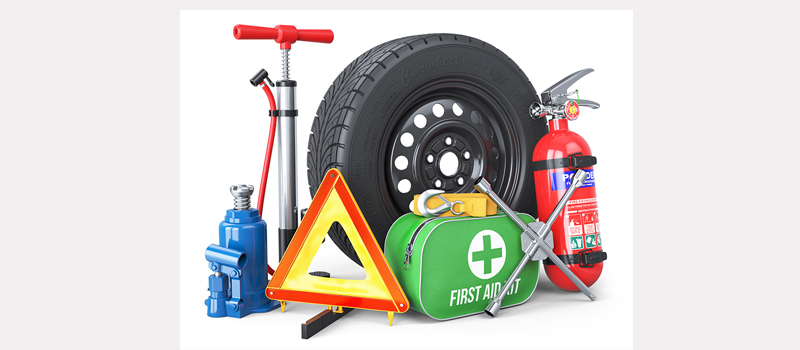Four Emergency Road Service Safety Tips
Four Emergency Road Service Safety Tips

Four Emergency Road Service Safety Tips
Having your vehicle break down in the middle of a trip is never a pleasant experience. Whether it is something as simple as a flat tire or something as serious as major engine problems, breaking down mid-journey can potentially become dangerous if not handled properly. Consider these four tips to help protect you and your vehicle in the event of a breakdown.
1. Carry the Right Equipment
Carrying an emergency road service kit in your vehicle is a small step that might save you a lot of headache and hassle. Along with a spare tire, jack, and tire tool, consider adding to your emergency road service kit jumper cables, a rapid charger, a portable air compressor, a tool kit, and a tire pressure gauge. If you are serious about emergency preparedness, you may also wish to pack items to keep yourself safe and comfortable during an extended breakdown. This includes items such as bottled water and non-perishable snacks, a space blanket, a flashlight, and a first-aid kit.
2. Make Yourself Safe and Visible
Assuming that your vehicle is operating well enough to do so, you should always try to pull off the road if your vehicle stops functioning. If possible, try pulling into a nearby parking lot rather than stopping on the side of the road. Wherever you stop, be sure to put your hazard lights on so that other drivers will notice your stopped vehicle in plenty of time to slow down.
3. Be Careful About Leaving Your Car Running
Unless you can quickly fix the issue yourself, a roadside emergency can mean that you could spend a good deal of time inside your car waiting for a tow truck or emergency road service provider to arrive. Anytime you are sitting in an unmoving vehicle, though, you must be careful about the risk of carbon monoxide poisoning from your exhaust. This is especially true if you are driving in icy or snowy conditions since ice and snow can clog your exhaust and drastically increase the risk of carbon monoxide poisoning.
4. Purchase 24/7 Roadside Assistance
One great way to make roadside emergencies far less of a nightmare is to purchase 24/7 roadside assistance. With 24/7 roadside assistance, you can call an experienced technician to your location any time of day or night. When possible, they will perform repairs right there on the spot and get you back on the road in a matter of minutes. For more serious issues, this type of assistance can help ensure you will have both a ride home and a way to tow your vehicle to a nearby mechanic.
Conclusion
Dealing with a roadside emergency is a stressful experience for many reasons. Thankfully, a little preparation and sound decision-making can go a long way toward ensuring that you make it home safely.
